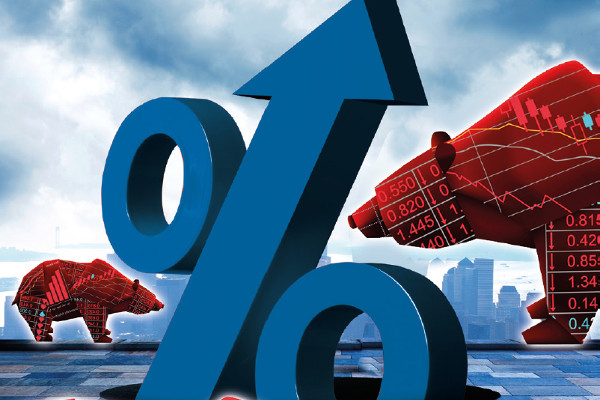Markets don’t appear too impressed by the chancellor’s new spending splurge
Government response to this crisis is not the primary driver of market sentiment right now, some argue.…
18th March 2020 12:20
by Tom Bailey from interactive investor
Government response to this crisis is not the primary driver of market sentiment right now, some argue.

Following on from the multi-billion pounds worth of stimulus promised in last week’s Budget, chancellor Rishi Sunak has unveiled extra measures in a bid to support businesses during the outbreak of coronavirus.
The most prominent was the promise of £330 billion worth of government loan guarantees to support businesses, available from next week. The idea is that companies will be able to access loans, guaranteed by the government, in order to cover their expected loss of revenue as demand collapses. As a result, they should be able to keep paying staff and cover other costs, helping to keep the rest of the economy afloat.
The £330 billion figure equates to roughly 15% of the UK’s total GDP. However, the chancellor noted that should demand exceed that, greater sums will be offered.
On top of this, large businesses will also be able to access short-term loans from the Bank of England. There will also be a “business rate holiday” for the leisure, hospitality and retail sectors. Meanwhile, small companies in the most affected sectors will be offered cash grants of up to £25,000
Promising further measures when and as needed, the chancellor said now was “not a time for ideology and orthodoxy.” Instead, he said, it was “a time to be bold.”
Many, however, argue that guaranteeing or extending loans will not be enough to save many businesses. Robert Alster, head of investment services at Close Brothers Asset Management, argues that many small and medium enterprises in the UK will be unwilling to take on debt in such an uncertain environment. He says: “This means that these firms will likely lay off staff instead, creating structural unemployment and running the risk of greatly dampening any economic rebound once the worst of the pandemic is over.”
Markets also appear unimpressed. The FTSE 250, at the time of writing (10.10am), was down over 4.8%. The more global looking FTSE 100 was also down around 5%. These losses add to a roughly 30% loss for each index since the start of the year.
According to Edward Park, deputy chief investment officer at Brooks Macdonald, loan guarantees were not enough to satiate worried markets. He notes: “The UK market reaction has been lacklustre as investors don’t want the economic impact of coronavirus deferred by interest free loans but want to see direct stimulus via helicopter money.
“Helicopter money was used by the Hong Kong government earlier in the virus outbreak and is now being suggested by the White House. These measures are designed to directly stimulate consumer demand or support corporate balance sheets by non-refundable government cash handouts.”
Not everyone, however, thinks helicopter money – the direct transfer of cash payments from governments to citizens – is all that helpful right now. Paul Donovan, chief economist at UBS Global Wealth Management, commenting on the US’s potential plan to give every American a cheque for $1,000, argues: “A $1,000 check buys lots of toilet rolls. In a lockdown, it does not save jobs at a bar or cinema.”
The best way to protect service sector job losses he argues, is by providing support for businesses facing a fall in demand. Such measures are the junior part of the US’s stimulus package. He argues that while providing cash for consumers should help to support a later bounce back, the immediate focus should be on providing support for businesses to stay afloat. This should allow them to keep paying their staff, rent and other costs and prevent what Donovan calls a double demand dip.
Either way, according Joe Healey, investment research analyst at The Share Centre, the impact on markets is likely minimal at this point. Healey argues that government response to this crisis is not the primary driver of market sentiment. He notes: “The future dictation on markets relies wholly on the spread of the virus rather than the immediate fiscal and monetary responses.” Whatever measures the state takes to try and stabilise thee economy, he expects markets to remain volatile for a while longer.
This article was originally published in our sister magazine Money Observer, which ceased publication in August 2020.
These articles are provided for information purposes only. Occasionally, an opinion about whether to buy or sell a specific investment may be provided by third parties. The content is not intended to be a personal recommendation to buy or sell any financial instrument or product, or to adopt any investment strategy as it is not provided based on an assessment of your investing knowledge and experience, your financial situation or your investment objectives. The value of your investments, and the income derived from them, may go down as well as up. You may not get back all the money that you invest. The investments referred to in this article may not be suitable for all investors, and if in doubt, an investor should seek advice from a qualified investment adviser.
Full performance can be found on the company or index summary page on the interactive investor website. Simply click on the company's or index name highlighted in the article.